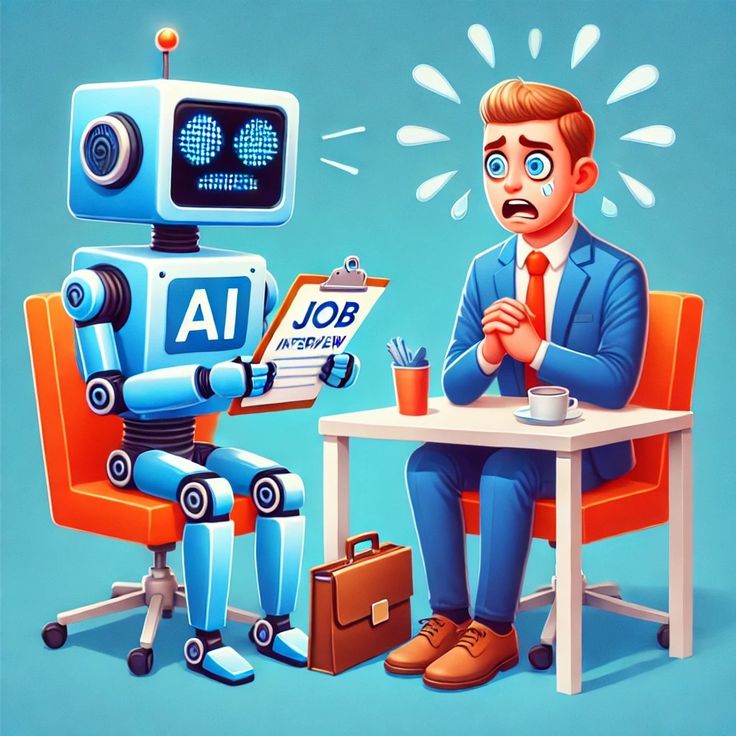Artificial Intelligence (AI) is revolutionizing the job application process, offering tools to streamline résumé creation, customize cover letters, and even automate job submissions. While this technology has made applying to jobs more efficient, it has also introduced significant challenges for job seekers and recruiters alike.
As job applications hit record numbers — with 28% of Americans searching for new opportunities as of August 28 — AI tools like ChatGPT, LazyApply, and Teal are increasingly becoming indispensable. However, these innovations also raise concerns about fairness, integrity, and applicant credibility.
How AI is Streamlining Job Applications
Job seekers, such as content creator Jeff, are leveraging AI throughout the application process. Jeff used ChatGPT to craft personalized résumés, prepare for interviews, and network with employees — strategies he shared in viral TikTok videos. Similarly, Chantal Cowie, another AI-savvy applicant, utilized platforms like Teal and Claude to analyze job descriptions and refine her applications, ultimately landing a high-paying remote job.
These tools have made it possible for applicants to customize résumés and apply to hundreds of jobs in a fraction of the time it would take manually. Services like AI Apply, which offers résumé builders and auto-apply features, claim users are 80% more likely to be hired. Platforms such as LazyApply and Simplify promise job seekers the ability to submit thousands of applications daily, saving hundreds of hours.
Read more about advancements in generative AI tools here.
The Drawbacks of AI-Powered Job Applications
Despite its advantages, AI has created unintended complications. Recruiters often find themselves inundated with applications, many of which lack genuine personalization. As Maddie Macho, a reverse recruiter, observed, AI-generated applications are creating “more noise,” making it harder for non-AI users to compete.
Companies are now implementing measures to detect AI usage. For instance, some require applicants to include specific words like “banana” to identify chatbot-generated responses. Others use verification codes to discourage automated submissions.
Recruiters also caution that poorly implemented AI tools can hurt applicants’ chances. “You’re not being eliminated for using AI,” explained Mike Peditto, a recruiter and TikTok creator. “You’re being eliminated because you didn’t use AI well.”
For employers, AI screening tools come with their own set of issues. A University of Washington study revealed significant biases in AI-powered résumé screening, with white male applicants disproportionately favored. This highlights the need for ethical and unbiased AI solutions in hiring.
Discover how employees are hiding their AI usage from employers in our exclusive article.
Balancing AI Assistance with Human Effort
While AI has become a critical tool for job seekers, experts emphasize the importance of human oversight. Ruth Edwards of Tiger Recruitment advises applicants to carefully review AI-generated content for accuracy and relevance. “AI is a great starting point,” she said, “but it’s not perfect. Ensure your applications align with the role’s requirements.”
Recruiters also encourage companies to rethink automated pre-screening processes, allowing applicants to demonstrate their abilities beyond AI-generated content. AI Apply CEO Aidan Cramer advocates for giving candidates more opportunities to “shine as a human” during the hiring process.
Learn how AI chatbots like Google’s Bard are evolving here.
The Future of AI in Hiring
As AI continues to integrate into hiring, both job seekers and employers must adapt. Tools like OfferGoose, which boasts a 300% higher success rate with AI-powered interview preparation, demonstrate AI’s potential to enhance human capabilities rather than replace them.
However, AI is only as effective as the humans using it. Job seekers are advised to refine their AI-assisted applications, while recruiters should prioritize ethical AI practices to ensure fair and unbiased hiring.
For more on OpenAI’s upcoming innovations, check out our coverage of their latest projects here.
For further insights, explore NBC’s report on how AI is shaping job applications.
By blending AI’s capabilities with a human touch, both job seekers and employers can navigate the evolving landscape of recruitment more effectively.






